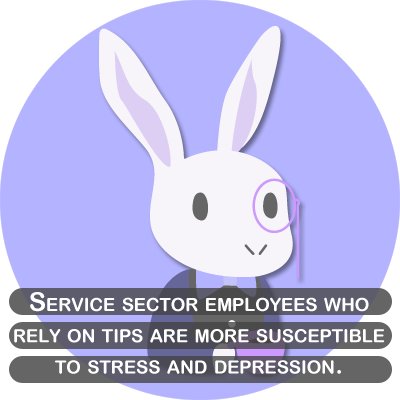The tipping point: Service sector susceptible to mental health issues
The incidence of stress, depression and reduced sleep is greater for jobs that rely on tips than for non-tipped positions.

Main titles
- In the U.S. sometimes the base pay for certain service sector jobs is 70% lower than the federal minimum wage. The assumption is that tips will make up for the reduced wages.

“The higher prevalence of mental health problems may be linked to the precarious nature of service work, including lower and unpredictable wages, insufficient benefits, and a lack of control over work hours and assigned shifts,” - Sarah Andrea, M.P.H., a Ph.D., candidate in epidemiology at the OHSU-PSU School of Public Health.
- Workers in service industry environments have to manage emotions such as anger, disagreement and sexual provocation.
- This has the greatest impact on women who comprise the bulk of the employees.
“While the idea that ‘the customer is always right' may be a valid business plan, our study results indicate that mentality may negatively impact employee health, especially in women,” - Janne Boone-Heinonen, Ph.D., M.P.H., associate professor of epidemiology in the OHSU-PSU School of Public Health.

 vneo
vneo 











